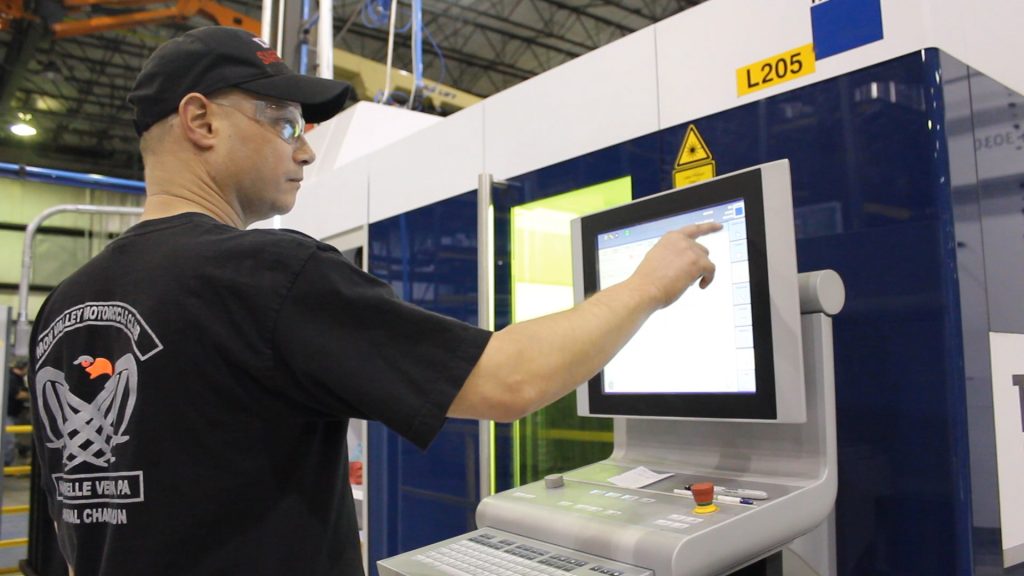
Pennsylvania’s community colleges are essential. Serving nearly 300,000 students annually, the 14 community colleges are the largest provider of public postsecondary education and workforce training in the Commonwealth – and their economic impact is significant. In 2016-2017, the 14 Pennsylvania community colleges and their students added $13.6 billion in income to the Commonwealth’s economy, approximately two percent of the total gross state product.
Community colleges also partner with more than 1,800 employers across the Commonwealth to identify gaps in skills training and develop programs that prepare workers for these in-demand, family-sustaining, and often pandemic-related careers. In 2017-18, for example, Pennsylvania community colleges awarded more than 75 percent of the associate degrees earned in Nursing within the Commonwealth.
In western Pennsylvania, a group of community colleges, industry, and workforce and economic development partners formed the Tri-State Energy and Advanced Manufacturing (TEAM) Consortium to respond to the need for a properly trained workforce in high-demand fields. By some estimates, businesses in this region could employ 380,000 new workers over the next ten years. TEAM partners, like the Community College of Beaver County (CCBC), are training workers for in-demand, local careers.
“CCBC has placed great importance on understanding the needs of the companies in our region and establishing distinct career pathways that respond to industry demand,” said John Goberish, M.S., Dean of the School of Industrial Technology & Continuing Education at CCBC. “In particular, the TEAM Consortium has created a 27-county network of industry, education, workforce, and economic development. Since we are focused on sharing best practices and resources, we can truly dedicate ourselves to maximizing the opportunities that the Marcellus and Utica Shale formations provide for our region.”
In fact, CCBC’s School of Industrial Technology and Continuing Education offers the only NAPTA-associated Process Technology associate degree within 300 miles of Pittsburgh. It is home to the Mascaro Construction Management programs. The campus’s Shell Center for Process Technology Education, which includes expanded classroom and lab spaces as well as enhanced simulation equipment, prepares students for jobs in the petrochemical and manufacturing industries.
In Pennsylvania, community colleges have recognized the need to train for today’s jobs – ensuring students enter the workforce ready to use current equipment, not outdated equipment from five years ago. Westmoreland County Community College (Westmoreland), for example, boasts a cutting-edge Advanced Technology Center that many local employers consider to be critical to create a pipeline of qualified workers.
“Community colleges are so responsive and open to collaboration. They have really mastered being able to pivot based on our workforce needs, ensuring they have the right equipment, curriculum and faculty to fill the manufacturing skills gap in western Pennsylvania,” said Katie Hager, Workforce Development Manager at DMI Companies in Monongahela. “There used to be a certain stigma against manufacturing – and, to some extent, community colleges as well – that our careers are less desirable. All that is changed with the advent of technology. We now need skilled workers who are trained in robotics and other highly technical fields. We are lucky we have local community colleges who provide the training needed in these exciting and lucrative careers.”
One initiative Ms. Hager referenced is a Westmoreland engineering apprenticeship program offered in collaboration with the Massachusetts Institute of Technology (MIT) and Advanced Robotics for Manufacturing (ARM) to expand its Advanced Manufacturing and Robotics curriculum. Through the 15-month Advanced Manufacturing and Robotics program, enrolled students complete three semesters of hands-on skills instruction at the college before participating in a capstone apprenticeship with a local manufacturer, like DMI Companies. Graduates have the functional knowledge and skills needed to design, construct, repair, and conduct analysis of complex automated systems with the aim of operational efficiency, which can be applied to positions such as industrial technician, process specialist, and/or automation technician.
“All of our instructors at the Advanced Technology Center have private sector experience as engineers, small business owners or journeymen,” said David Pistner, Vice President of Workforce & Community Development at Westmoreland. “They were all students at one time and relate well to what the students are going through. This connection – coupled with real world know-how – enhances the student’s learning experience and better prepares them for their careers.”
“The goal of Kennametal’s EMERGE rotational leadership development program is to build the next generation of talent in the manufacturing industry across various disciplines including our IT, Finance, Operations and Commercial teams,” explained Scott DeVinney, CMP, CPP, Commercial Supervisor at Kennametal Inc. “The three-week curriculum at Westmoreland’s Advanced Technology Center gives these employees a chance to learn about the art of machining and experience hands-on projects putting their newly learned skills to the test in a safe environment.”
In addition to CCBC and Westmoreland, the Community College of Allegheny County and Butler County Community College are also essential members of the TEAM Consortium.
“Our consortium isn’t just filling jobs, we are changing perceptions around energy and manufacturing careers and investing in life-changing employment opportunities for those who want to advance in the field,” said CCBC Dean Goberish. “CCBC also recently launched a High School Academy, allowing students in Beaver County’s school district to complete up to half of their associate degree while still in high school. By giving our students every advantage, we’re also giving local employers a pipeline of knowledgeable future team members.”
Through the TEAM Consortium in western Pennsylvania, local employers have found true partners to educate or upskill their current or future employees – quality, affordable community colleges.